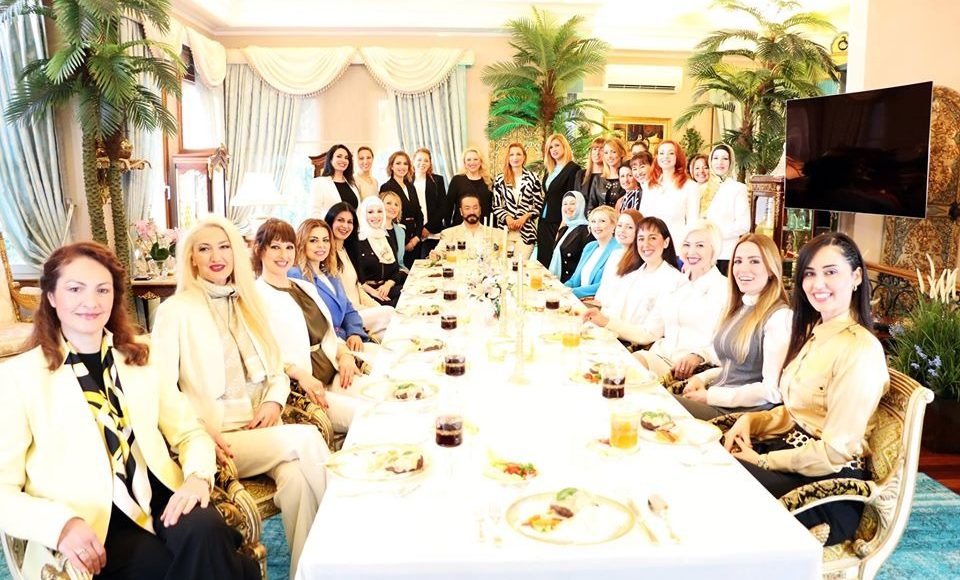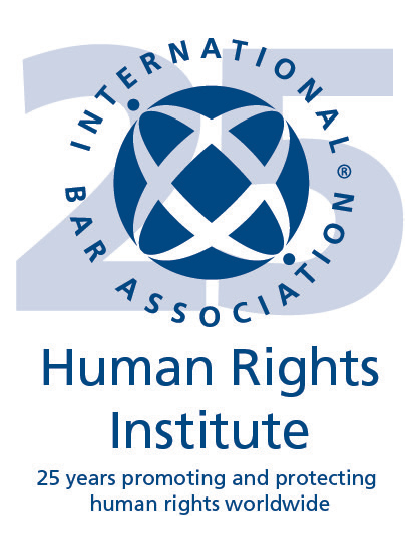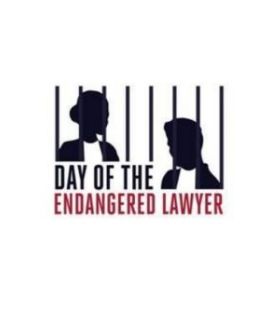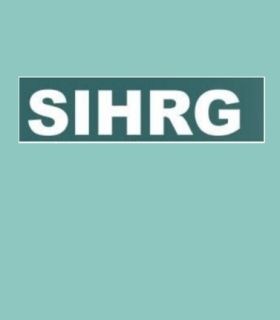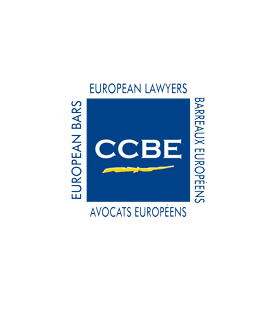On July 11, 2018, a police operation was carried out against Adnan Oktar (a well-known intellectual and prolific author) and his group of friends. After this operation, Adnan Oktar and his friends were arrested, put on trial and sentenced to thousands of years in prison. At this stage, most of the defendants are still in prison and the proceedings are partly before the ECtHR and the Constitutional Court.
Adnan Oktar and his friends are being prosecuted because of their beliefs, their interpretation of Islam and their lifestyle.
Indeed, in 2014, RTÜK (Turkish Supervisory Board on Radio and Television) imposed sanctions on the A9 TV channel, where Adnan Oktar’s show programs were broadcast, for the same reasons. However, upon the application of the persons concerned (Application number 2016/13960), the Constitutional Court ruled on 30.03.2022 that this RTÜK decision “violated the freedom of religion and conscience”.
Exactly the same way, in this case against Adnan Oktar, the defendants’ freedom of religion and conscience and freedom of thought are being violated. Indeed, the alleged purpose of offense of this so-called armed criminal organization is “degenerating religion”.
This allegation, which first emerged in the initial police report, appears on page 857 of the police report as follows:
“it is clearly understood that the ultimate goal of the organization is to disrupt the social structure and to degenerate the Islamic religion”
This allegation, taken from the initial police report, was further developed and used in the indictment prepared by the prosecutor’s office. Expressions such as “deviant belief”, “deviant ideology”, “deviant belief”, “pseudo-religious”, “deviant interpretation”, “distorted interpretation”, “pseudo-modern”, “indecent show”, “distorting religion”,“ degenerating the ‘Turkish Family Structure’” are all concepts that are NOT DEFINED AS CRIMES IN THE TURKISH PENAL CODE, yet they were used to accuse the group and to describe the purpose crime of a so-called criminal organization.
Similar statements were made in the public prosecutor’s opinion on the merits and also in the court’s reasoned decision.
| Throughout the trial, the defendants were questioned about their behaviors and thoughts regarding their private lives, lifestyles and beliefs; they were interrogated about their dances on A9 TV, photos of them in bikinis, about how many times they performed their prayers, why they did not wear a headscarf, why they did not travel abroad, why they did not get married, or why they did get married and even about why they had tattooed eyebrows. |
Obviously, the aforementioned RTÜK report constituted the basis of the indictment and the reasoned verdict. The items depicted in the report can be summarized as follows;
· Music being played in a TV show featuring sacred values of Islam such as the Qur’an and hadith (Prophet Mohammad’s sayings),
· The audience dancing to the music at their seats in the program,
· Female guests wearing heavy make-up and low-cut outfits,
· Adnan Oktar’ s constant compliments to female guests during the interview …. was deemed incompatible with Islamic tradition,
· The dance figures performed in the program were also examined; it was decided that they were not rhythmically and aesthetically pleasing and did not have choreographic values.
In the first Instance trial conducted by the Istanbul 30th High Criminal Court, Adnan Oktar and his friends were tried on the SAME ALLEGATIONS PRESENTED IN THE WARNING SANCTION ISSUED BY RTÜK, and were sentenced IN VIOLATION OF THE LAW.
Moreover, during a hearing, the presiding judge of the previous panel of the Istanbul 30th High Criminal Court asked Adnan Oktar the following question, referring to this administrative sanction decision of RTÜK;
PRESIDING JUDGE: Alright, this is again in the indictment, it is alleged in the indictment, that the broadcasts made in TV programs –there are also RTÜK sanctions included in the file– that you made statements with so-called exegetical content under the guise of religious discourse in a way that insulted Islamic values, degenerating national values and traditional family structure, and immediately afterwards, on the same stage, it was alleged that you made women with excessively revealing clothes belly dance from close range,….. what do you have to say about this?
However, with the decision of the Constitutional Court, the highest judicial authority in Turkey, dated 30.03.2022, the mentioned RTÜK report and the warning sanction were evaluated as “AS VIOLATING THE FREEDOM OF EXPRESSION” of Adnan Oktar and his friends – a principal human right which is guaranteed by Article 26 of the Constitution, and thus the sanction was found to be UNLAWFUL.
Exactly “this sanction decision by the Supreme Council of Radio and Television (RTÜK)”, mentioned in the question addressed to Adnan Oktar by the Presiding Judge of the Court, has been brought before the Constitutional Court.
Moreover, the Constitutional Court also BROUGHT VERY BLATANT CRITICISMS IN THE REASONING OF ITS DECISION regarding the violation of rights of Adnan Oktar and his friends.
IN THE REASONS OF THE CONSTITUTIONAL COURT’S RULING REGARDING “VIOLATION OF RIGHTS”;
1-‘THE SUBSTITUTION OF UNVERIFIED CONTENT CIRCULATING ON SOCIAL MEDIA WITHOUT ANY FILTERING FOR THE TRADITIONAL PROCESSES OF THE JUDICIAL SYSTEM CANNOT BE RECONCILED WITH THE TRADITIONS OF THE RULE OF LAW…”
2-“Without any objective data and based solely on some abstract considerations, social media campaigns and RTÜK complaints CANNOT BE USED AS A JUSTIFICATION FOR INTERFERENCE WITH ANY FREEDOM”
3- In its judgment, in which the Constitutional Court ruled that “questioning the interpretations of the participants of the program about their own religion and what the customary religious practices are SHOULD BE OUTSİDE THE SCOPE OF THE JUDICIAL BODIES AND THE ADMINISTRATION”.
The Constitutional Court made the following determinations and evaluations by referring to one of its previous judgements – one regarding Tuğba Arslan – in several places, in which it addressed the interventions against the headscarf in the past. The court;
A) Made the assessment that; investigating which of the members of a particular religion or belief more accurately understand the commandments of their common faithis NOT WITHIN THE SCOPE (REALM) OF EITHER JUDICIAL ACTIVITIES AND JUDICIAL AUTHORITY OR ADMINISTRATIVE ACTIVITIES AND ADMINISTRATIVE AUTHORITY.
B) Issued a warning stating that “… courts should also avoid getting into the situation of deciding what a person should believe and how he or she should behave”.
The court warned that a contrary approach “would mean that courts or other organs exercising public power would effectively be substituting their own value judgments for the conscientious assessment of the applicants in order to determine what it is appropriate for them to believe or how they should behave in the practice of religion or belief”.
-4- Although the justification for the administrative sanction imposed by RTÜK on Adnan Oktar and his friends stated that “the comments made on verses and hadiths in the broadcasts in question, followed by the dancing of women in revealing clothes and men to various music, were incompatible with the seriousness of religious issues and that this caused offense to people with certain religious values”,
| The Constitutional Court ruled that the administrative sanction imposed by RTÜK on Adnan Oktar and his friends was not justified, “THE PARTICIPANTS IN THE PROGRAM DID NOT ADDRESS THE RELIGIOUS CONVICTIONS OR PRACTICES OF ANY GROUP OF PEOPLE WITH THE INTENTION OF INSULTING THEM” and that “INTERFERING WITH CERTAIN ATTITUDES AND BEHAVIORS IN THE RELIGIOUS FIELD, WHICH IS AN AREA OF INFINITE DIVERSITY, ON THE GROUNDS THAT THEY ARE DEEMED INAPPROPRIATE BY OTHERS, WOULD CONSTITUTE A VIOLATION OF THE FREEDOM OF EXPRESSION”. |
In brief;
BY THIS RULING OF THE CONSTITUTIONAL COURT, the fact that there is no legal basis for the claim depicted in RTUK’s administrative sanction decision on A9TV stating that “Adnan Oktar and his friends are allegedly broadcasting from A9TV against the moral values, customs and traditions of the society” – a claim also included in the indictment of the case in which Adnan Oktar and his friends are on trial and in the arrests and unjust conviction decisions issued against them- and that ALL THESE ALLEGATIONS ARE IN FACT EMPTY AND INVALID WOULD BE PROVED BY THE CONSTITUTIONAL COURT.
As a matter of fact, Turkey’s esteemed law professors, whose legal opinions were also submitted to the file, have stated that thoughts, beliefs and ways of life cannot be judged, and that the way of interpreting religion and the way of life conveyed starting from the RTÜK report in question until the reasoned decision cannot be considered as the purpose crimes of a criminal organization.
CONCLUSION AND DEMAND
| “Being condemned and accused because of religious beliefs and convictions” is against our Constitution. However, as explained above, Adnan Oktar and his friends were prosecuted for their beliefs, the way they understand and live their religion, the clothes they wear and the way they worship. |
According to Articles 24 and 25 of our Constitution, everyone has the freedom of conscience, religious belief and opinion.
Third paragraph of Article 24 of the Turkish Constitution reads as follows:
“No one shall be compelled to worship, or to participate in religious rites and ceremonies, or to reveal religious beliefs and convictions, OR BE BLAMED OR ACCUSED BECAUSE OF HIS RELIGIOUS BELIEFS AND CONVICTIONS.”
With reference to Article 90 of the Turkish Constitution, and according to Article 9 of the European Convention on Human Rights;
“Everyone has the RIGHT TO FREEDOM OF THOUGHT, CONSCIENCE AND RELIGION; this right includes freedom to change his religion or belief and freedom, either alone or in community with others and in public or private, to manifest his religion or belief, in worship, teaching, practice and observance.”
As per Article 18 of the Universal Declaration of Human Rights;
“Everyone has the RIGHT TO FREEDOM OF THOUGHT, CONSCIENCE AND RELIGION; this right includes freedom to change his religion or belief, and freedom, either alone or in community with others and in public or private, to manifest his religion or belief in teaching, practice, worship and observance.”
According to Article 18, paragraph 1 of the United Nations Covenant on Civil and Political Rights;
“Everyone shall have the right to freedom of thought, conscience and religion. This right shall include freedom to have or to adopt a religion or belief of his choice, and freedom, either individually or in community with others and in public or private, TO MANIFEST HIS RELIGION OR BELIEF IN WORSHIP, OBSERVANCE, PRACTICE AND TEACHING.”
| To sum up, the Constitution of the Republic of Turkey, the European Convention on Human Rights, the Universal Declaration of Human Rights and the United Nations Covenant on Civil and Political Rights recognize freedom of thought and belief for all persons and all citizens of Turkey. |
Accordingly, each individual can think as he or she wishes, believe what he or she wants with a free conscience, and fulfill his or her religious duties according to his or her convictions and conscience.
There is a mentality that slaps women for wearing shorts, that treats them as women of easy virtue for wearing mini-skirts, and that thinks they deserve sexual harassment because of their cleavage. A group of people who deem themselves entitled to interfere with women’s laughter, dancing, dressing, make-up and aesthetics imagine that oppressing and humiliating women is piety.
This is the mentality that led to the trial of Adnan Oktar and his friends.
This case should in fact have been dismissed with the Constitutional Court’s violation of rights ruling stating that the RTÜK sanction decision, which formed the initial basis of this case, was in violation of the law.
| THE DEFENDANTS IN THE CASE HAVE EXHAUSTED THE JUDICIAL REMEDIES AVAILABLE IN TURKEY AND STRONGLY BELIEVE THAT THEY HAVE FAILED TO OBTAIN A JUST RESULT. THEY ARE THEREFORE IN THE PROCESS OF APPLYING TO THE EUROPEAN COURT OF HUMAN RIGHTS. |
This case has been ongoing since July 11, 2018 for more than 6 years.
The court of first instance issued its final verdict on November 16, 2022, sentencing many defendants to thousands of years in prison. The Supreme Court of Appeals recently upheld this verdict after EVALUATING 670 FOLDERS OF CASE FILES WITHIN 6 MONTHS (!). This case has always been kept on the agenda with the outrage incited on social media, press and TV channels. TV channels have embraced the complainants of the case and the Chief of the Financial Police Department, who carried out the operation, and have featured their slanderous statements, which are not based on any concrete facts or documents, as if they were “real concrete evidence” even for the charges for which a final acquittal verdict has been issued; A PERCEPTION OPERATION HAS BEEN CARRIED OUT IN TURKEY, and this has been successful.
For example, Furkan Sezer, the Chief of the Financial Police Department at the time, appeared on TV in the days leading up to the Supreme Court of Appeals’ verdict and repeatedly stated that he thought “the Supreme Court of Appeals would uphold the court’s ruling.” Some of the complainants have stated in interviews that Adnan Oktar should be given the death penalty, which has not been applied in Turkey since 1984, and no one has said that this is not allowed under the Turkish Penal Code.
Confiscation orders for the assets of the defendants, no different from the practice of “general confiscation”, which is prohibited under the Turkish Constitution, were reported with joy in Turkish media. While the case was under review by the Supreme Court of Appeals, many TV series dealt with the allegations against the defendants in a way to create feelings of hatred in the public, with the characters in the TV series being brutally murdered and the public being encouraged to do so.
A PUBLIC OUTRAGE HAS BEEN CREATED IN A WAY THAT WOULD NOT ALLOW A DECISION TO COME IN FAVOR OF THE DEFENDANTS FROM THE SUPREME COURT OF APPEALS.
The defendants in this case continue to pursue their rights through applications to the Constitutional Court and the ECHR. However, there are other ongoing cases against this community. In their social media posts, the hostile complainants make statements and threats that “new operations” are on the way. For example, in February 2024, a new case was initiated at the Istanbul 1st High Criminal Court under the artificial name of “reorganization” against some individuals who are frequently targeted in these accounts. 6 of the 20 defendants in this case are lawyers. While many of them had already been convicted in the above-mentioned case, they are being tried for the second time on the same charges. With the decision of the Supreme Court of Appeals to uphold the verdict, it seems likely that unfavorable rulings will be issued rapidly in these pending cases as well.
Our aim is solely to convey the developments regarding the ongoing judicial process and the related violations of rights in an impartial manner, and to keep you informed.”

